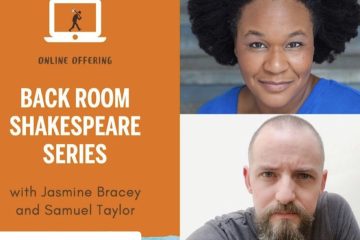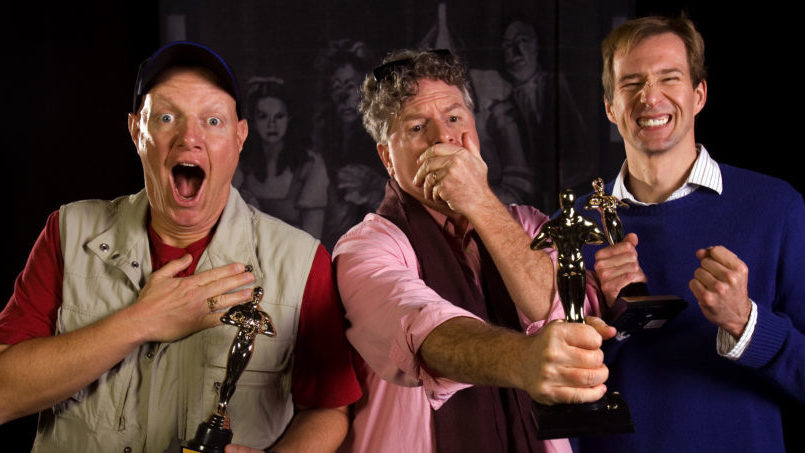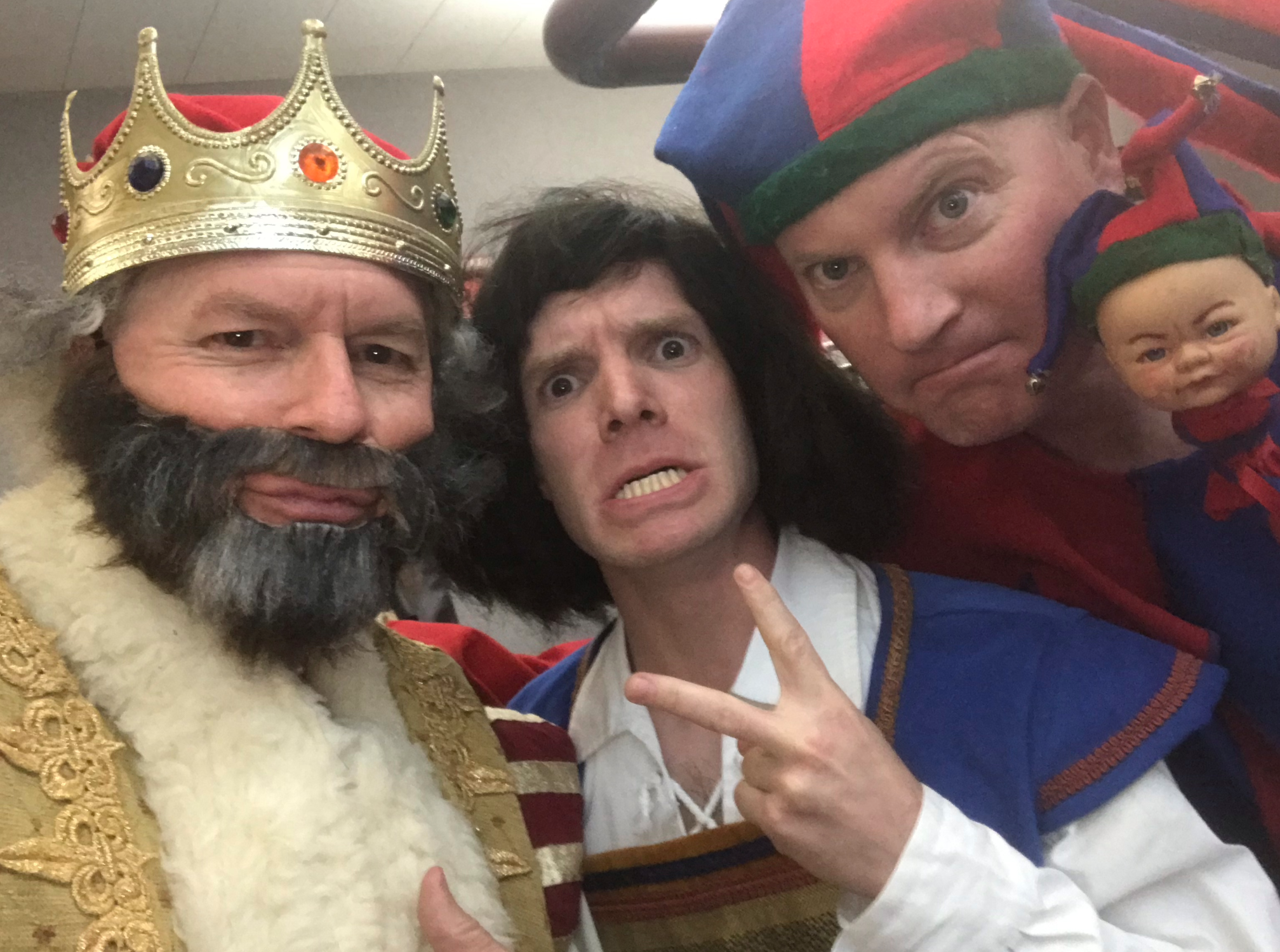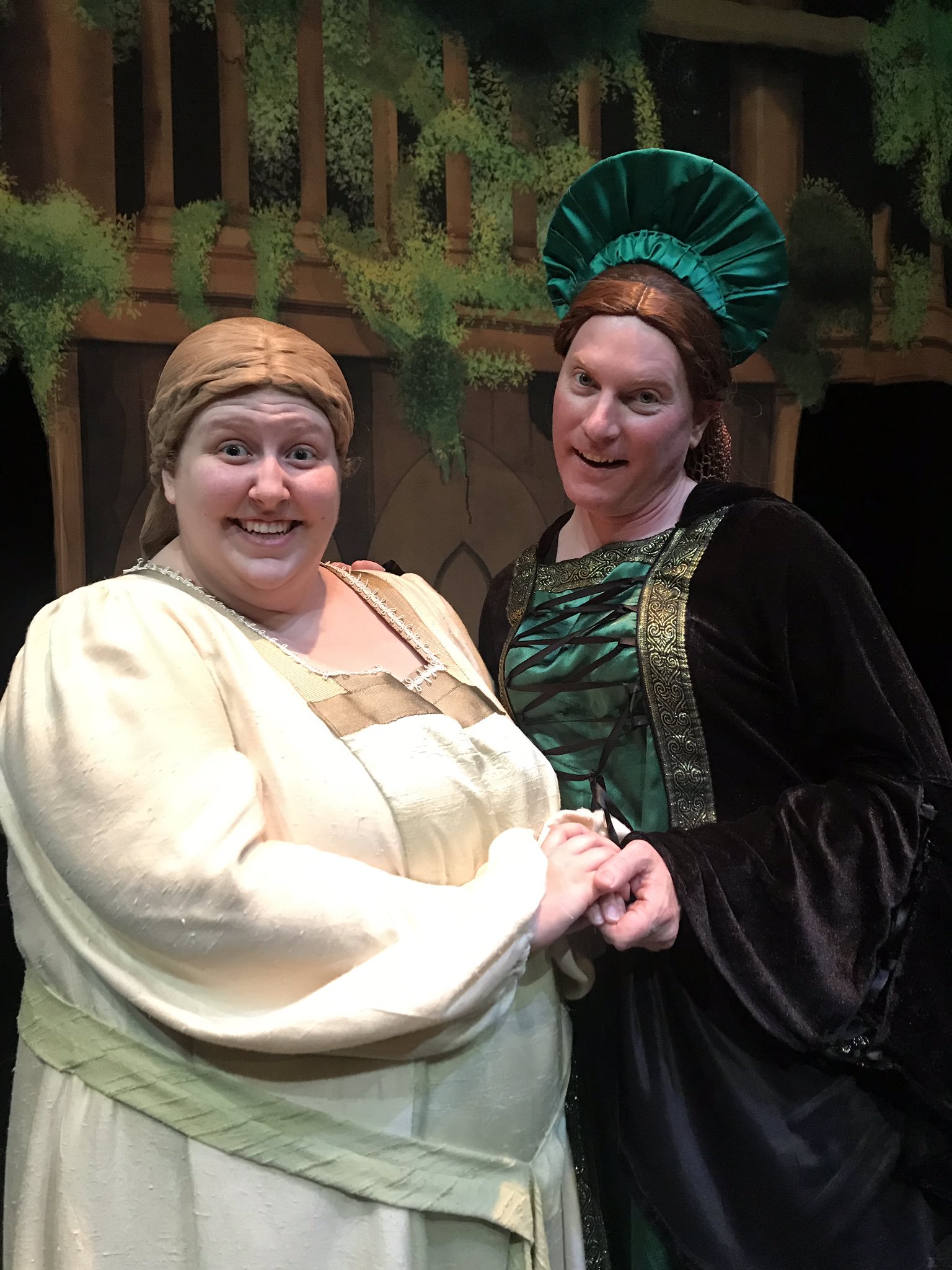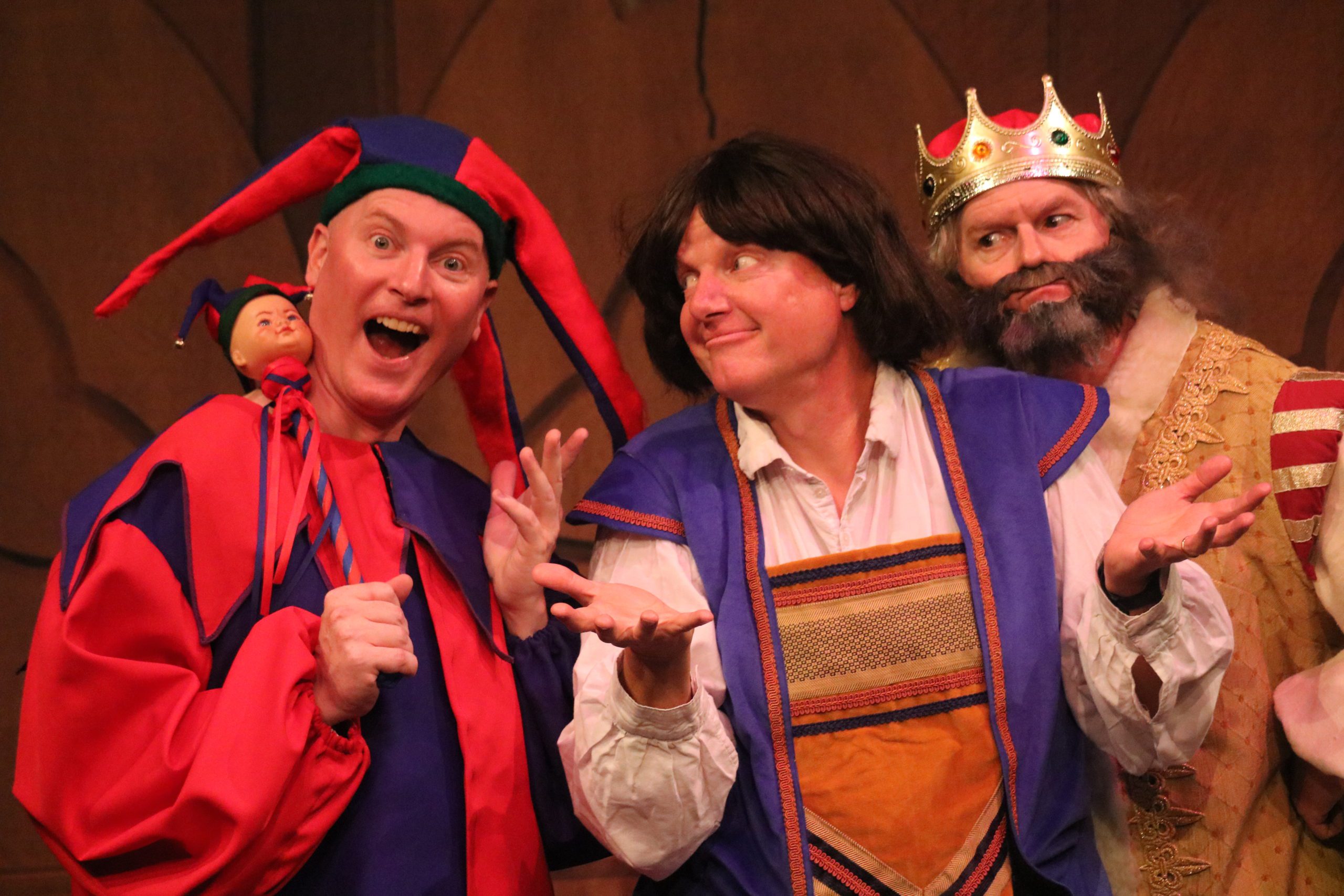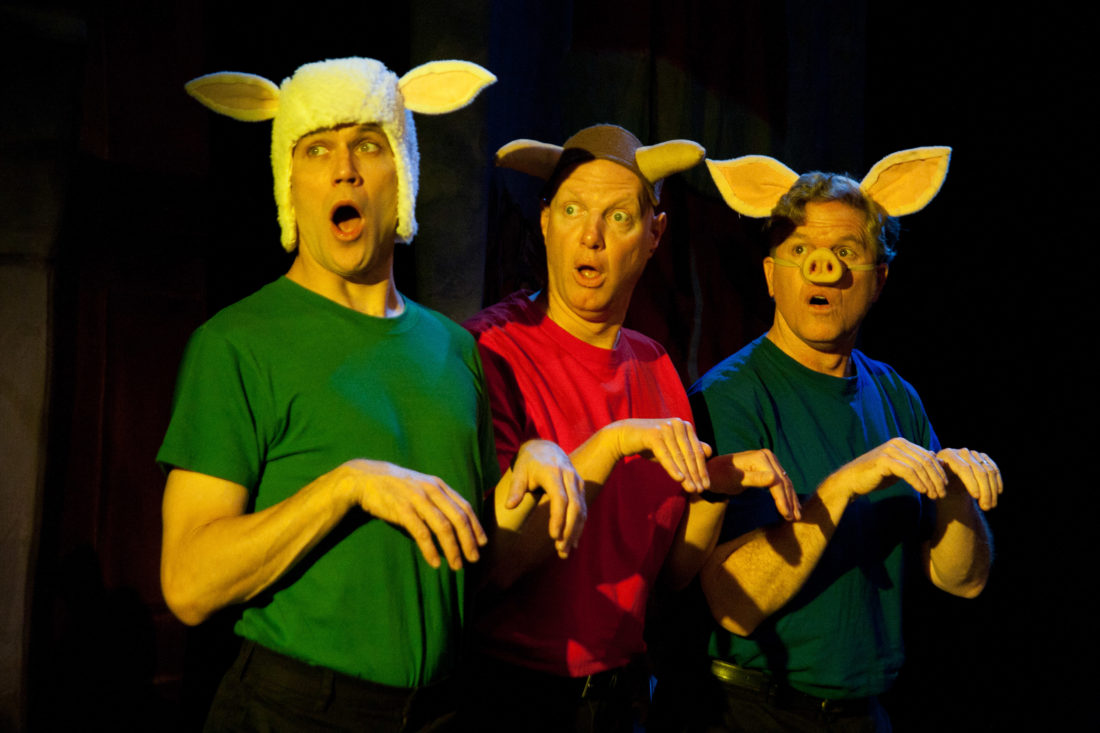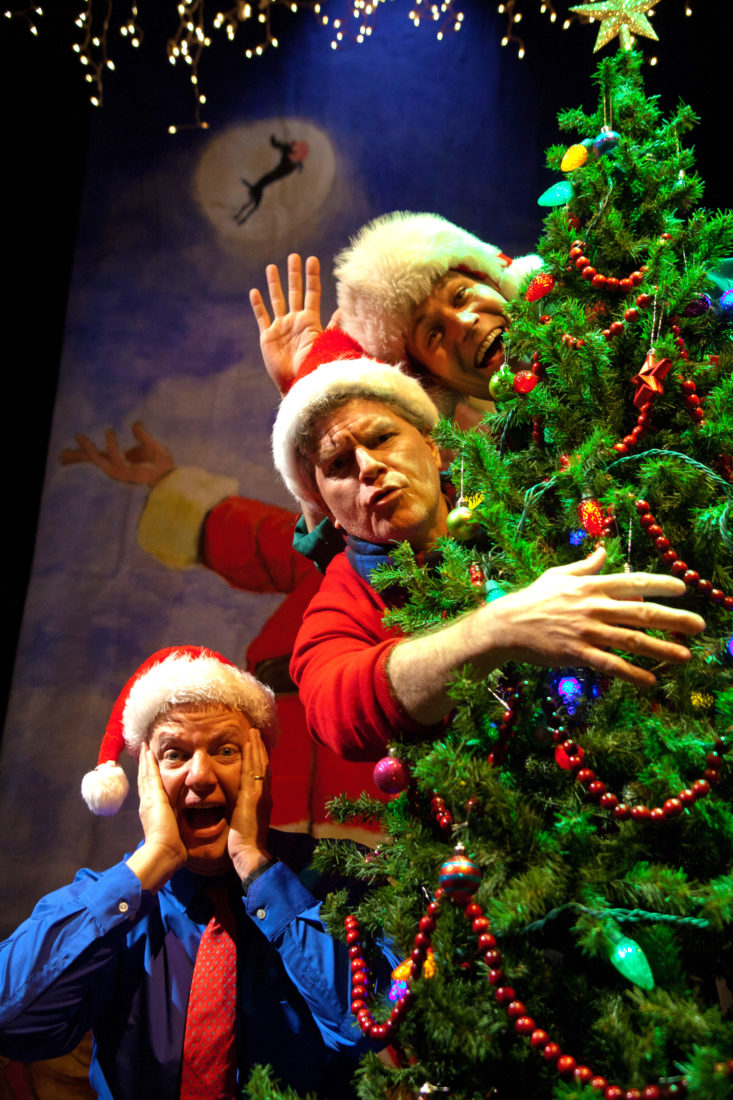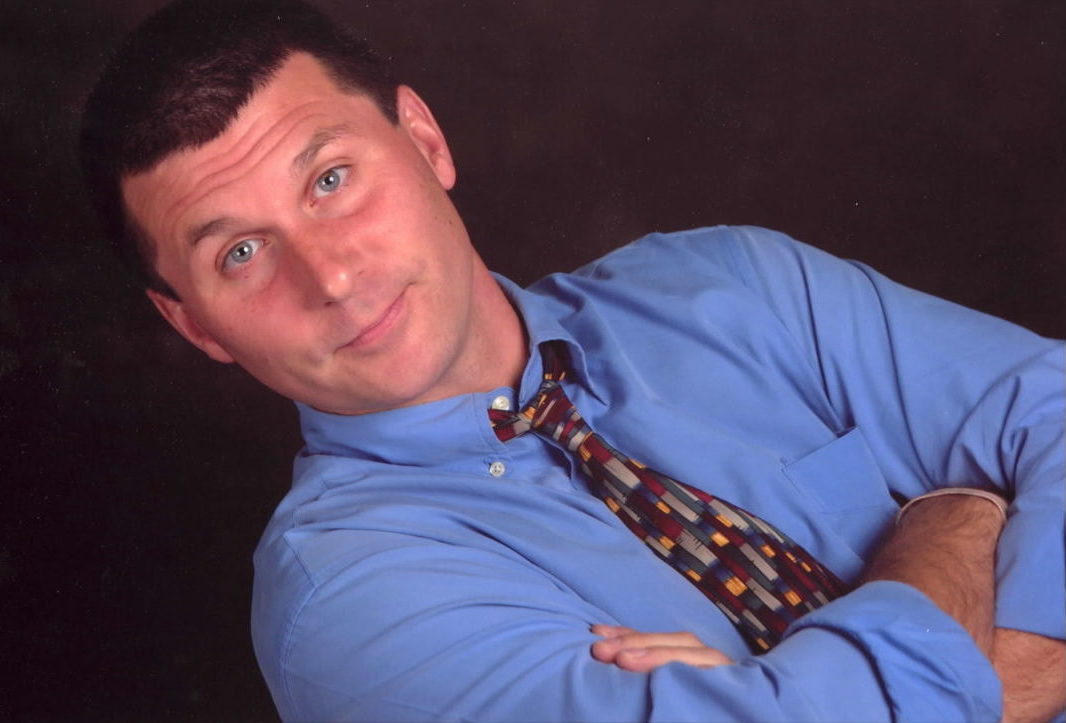We Remember ‘Balto’
The animated film Balto celebrated its 25th Anniversary last month, and RSC members Adam Long, Reed Martin, and Austin Tichenor played the sidekick sled dogs Nikki, Kaltag, and Star…until they, like most of the cast, were replaced with different actors. Their voices stayed in the film, however, and this week Reed (left, with the statue of Balto in Anchorage, Alaska in 2012) and Austin remember the process of how they got the gig, how it went, and what happened next. A fun and funny remembrance featuring revelations about the film’s original title; having one degree of Balto himself, Kevin Bacon; big thanks to director Simon Wells and producer Steve Hickner; clues to executive producer Steven Spielberg’s changing enthusiasm; shout-out to other film projects we were in (Carry On Columbus, Liquid Television: Dogboy); how animated films are recorded first; a special appearance from our co-star and fellow “extra voice” Mike McShane; and how Balto is, appropriately enough, the perfect pandemic movie. (Length 18:48)
Podcast: Download (Duration: 18:48 — 21.9MB)
